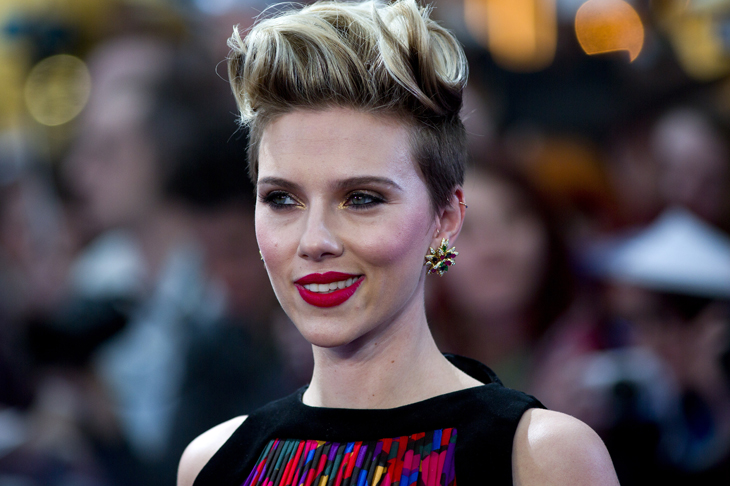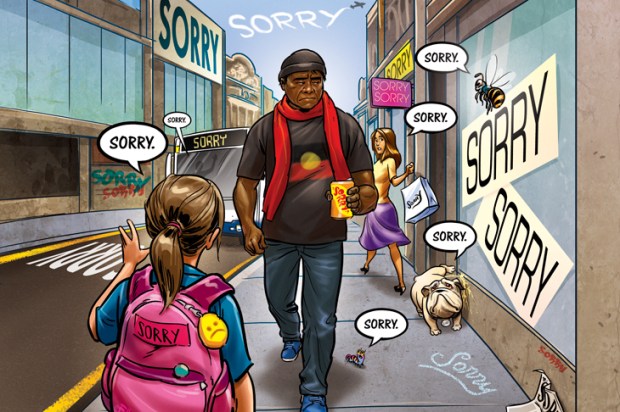Convicted of murder, Derek Bromley can teach us all a lesson about saying sorry when we are not guilty. And he has something in common with US President Donald Trump. I say this in the context of those never-ending instances of trial by social media and by feverish activists anywhere, who claim some utterances are offensive – usually racist, that much overused, little understood epithet. I’ll get to Trump shortly.
Derek Bromley was convicted of murder in 1984 (wrongfully, it is argued). It was said that he assaulted a person and drowned him in the river in Adelaide. He is in his 35th year of incarceration. Similar cases have warranted sentences of around ten to twenty years. He was convicted on the basis of eye witness testimony by a person known to be psychotic and suffering from hallucinations and delusions on the night of the incident.
He was eligible for parole more than a decade ago, but his parole application has been declined (four times), due to his refusal to admit guilt and show remorse.
Bromley chose to remain in jail rather than admit to and apologise for a crime he didn’t commit. His decision adds terrible injury to shocking injustice.
But at the same time, by accepting that outcome, he retains his self respect and he effectively destroys the credibility of the conviction against him. That’s my point. (The details of the case reveal a monstrous injustice, which continues to this day in a scandalous decision by the appeals court. But that’s another story.)
Now to Trump. At a rowdy press conference at the White House late last week (after the mid-term elections), one black reporter set about putting an accusation-posing-as-a-question about Trump’s self-description as a nationalist. She pointed out that him saying ‘nationalist’ would be seen as a signal to nasty, racist ‘white nationalists’; she was no doubt hoping he would apologise for his racism on live TV.
Trump retorted by accusing her of putting a racist proposition and explaining – yet again – that he was for the ‘nation’ first, the world second. ‘I’m a nationalist, not a globalist,’ he declared, angry at her biased insinuation.
No apology.
If you are mischaracterised as a racist but you are not in fact a racist, you must not apologise. That would be a lie that infers you were displaying your racism, when you were not. It is also taken as confirmation that you are indeed mouthing (or writing) racist words that reveal your racism. The apology demanded is really a bullying tactic to instil fear. Real racists hide from public view in shame. Some of them even wear white hoods to avoid recognition. Real racism is a hateful condition born of ignorance, nurtured by intolerance.
Baseless accusations of racism – of which there are shamefully too many examples – tend to generate apologies; ‘offences’ against identity politics likewise.
I still can’t get over Scarlett Johansson withdrawing from playing the transgender Dante Tex Gill in the movie Rub & Tug after being accused of – wait for it – acting transgender without being one. ‘In light of recent ethical questions raised surrounding my casting as Dante Tex Gill, I have decided to respectfully withdraw my participation in the project,’ Johansson said. That is as bad as if the late, great and straight Heath Ledger had apologised for playing a gay cowboy in Brokeback Mountain. Acting is pretend, right? Ethical questions? Bah humbug.
But there is another thing: accusations of racism are often based on mischaracterisations of what was said or written. Or drawn, as in the case of the late Bill Leak’s famous cartoon about an Aboriginal policeman telling an Aboriginal dad to teach his son about personal responsibility, which got him (unjustly) in front of the discredited Australian Human Rights Commission. In fact, the cartoon was a compassionate and poignant response to well documented historic social problems.
More recently, Ross Cameron was accused of being a racist over his description of Chinese people (in a particular context) and instantly fired from his role as co-host with Speccie editor Rowan Dean, on the Sky News opinion program, Outsiders. James Allan’s excellent deconstruction last week in these pages of that so called racist smear unleashed by activist group Sleeping Giants as part of its political agenda, is recommended reading. Please note: it was not Chinese people who called him racist, but the anti-democratic white trash of Sleeping Giants.
And before anyone accuses me of an anti-white racist remark (white trash) let me remind them, there is no such thing as anti-white racism.
Last week, CNN host Don Lemon (a black dude) was the latest to prove it when he said on air – without being fired – that white men are ‘the biggest terrorist threat to America, most of them radicalised to the right, and we have to start doing something about them. There is no travel ban on them, they have the Muslim ban, there is no white guy ban, so what do we do about that?’
As I say, perhaps the most damaging aspect of apologising for what you haven’t done is the apparent confirmation of your guilt that such an apology generates. Derek Bromley knows this. Also, such encouragement of ‘wrongful convictions’ or wrongful accusations and mischaracterisations gives licence for more of the same.
Unnecessary or redundant apologies also continue to confuse our relations with agitators in the Aboriginal community, where endless amounts of ‘sorry’ are doled out in cash and in countless public apologies for past wrongs – apologies which are never publicly accepted. Just as the empty apologies made in the wake of claims of racism, the absence of such acceptance leaves a hollow mark where forgiveness should do its healing. So the hurt continues for all Australians.
An apology is meant to express remorse and lead to redemption. The innocent cannot be sincerely remorseful and are not in need of redemption.
Got something to add? Join the discussion and comment below.
Get 10 issues for just $10
Subscribe to The Spectator Australia today for the next 10 magazine issues, plus full online access, for just $10.
You might disagree with half of it, but you’ll enjoy reading all of it. Try your first month for free, then just $2 a week for the remainder of your first year.














Comments
Don't miss out
Join the conversation with other Spectator Australia readers. Subscribe to leave a comment.
SUBSCRIBEAlready a subscriber? Log in